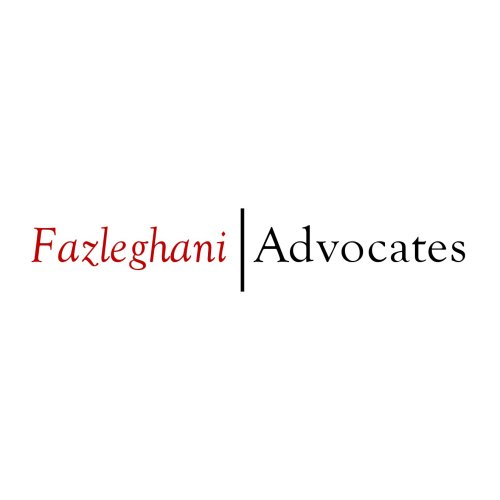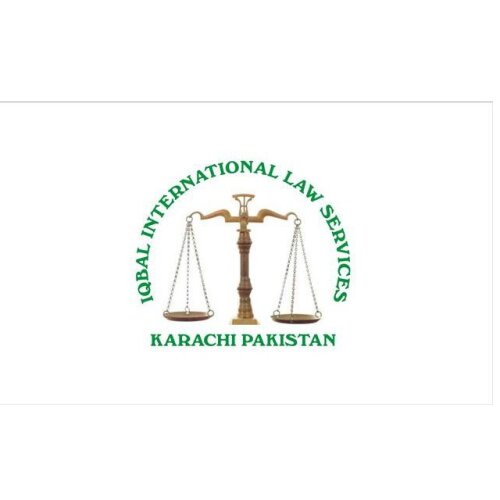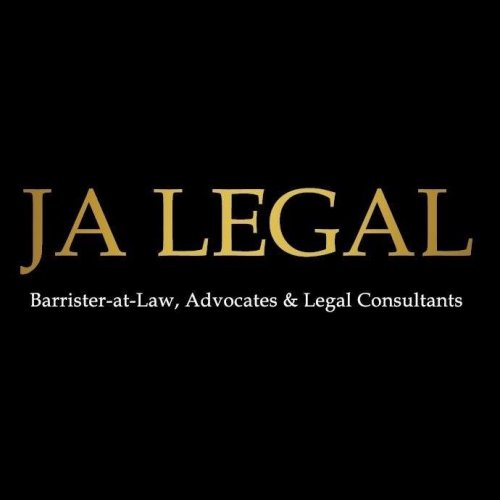Best Housing, Construction & Development Lawyers in Karachi
Share your needs with us, get contacted by law firms.
Free. Takes 2 min.
Free Guide to Hiring a Real Estate Lawyer
List of the best lawyers in Karachi, Pakistan
About Housing, Construction & Development Law in Karachi, Pakistan
Karachi, the economic hub of Pakistan, is a city with burgeoning housing and construction sectors. This growth comes in response to the increasing demands of a booming population and urban expansion. Housing, Construction, and Development law in Karachi encompasses a variety of regulations and statutes designed to govern real estate transactions, construction processes, property rights, land use, zoning, and environmental compliance. These laws aim to ensure orderly urban development, protect property owners' rights, and mitigate disputes over construction and real estate transactions.
Why You May Need a Lawyer
Legal advice in the field of Housing, Construction & Development can be essential in a number of circumstances:
- Disputes over property boundaries or ownership rights.
- Legal complexities in buying or selling real estate, including due diligence processes.
- Issues related to construction licensing, permits, and compliance with local building codes.
- Contract disputes between homeowners and construction companies or contractors.
- Resolving tenant and landlord conflicts under the rental laws.
- Handling cases of illegal construction or encroachments.
Local Laws Overview
Housing, Construction & Development in Karachi are primarily regulated by a combination of federal, provincial, and local laws. Key aspects include:
- Sindh Building Control Authority (SBCA) Regulations: Govern the construction standards, safety, and design of buildings.
- Town Planning Regulations: Enforce guidelines regarding zoning, land use patterns, and urban development.
- Land Acquisition Act: Provides the framework for lawful acquisition of land by the government for public purposes.
- Transfer of Property Act: Governs the procedures and rules involved in transferring property rights and ownership.
- Environmental Regulations: Ensure that construction and development projects adhere to environmental protection standards.
Frequently Asked Questions
What are the basic requirements for obtaining a construction permit in Karachi?
To obtain a construction permit in Karachi, you need to submit an application to the SBCA with the requisite building plans, ownership documents, and proof of compliance with town planning regulations.
Can I initiate construction without a permit?
Initiating construction without a permit is illegal and can lead to penalties, fines, or even demolition of the unauthorized construction.
What should I consider before buying property in Karachi?
Prior to purchasing property, ensure legal verification of ownership, background of the property in terms of litigation or any encumbrances, compliance with zoning laws, and the legitimacy of the plots.
How do I resolve a dispute with a construction contractor?
Dispute resolution typically involves negotiations, mediation, or litigation under the terms of the contract and in alignment with the local contract and construction laws.
What is Katchi Abadi, and are there any legal concerns with it?
Katchi Abadi refers to informal settlements or slums in Karachi. Regularization of these areas is often complex, requiring legal assistance to address issues of ownership and compliance with local laws.
Who regulates housing societies in Karachi?
Housing societies are regulated by the Sindh Cooperatives Societies Act, and oversight is provided by the Sindh Cooperative Societies Registrar.
What legal action can I take if my property is encroached upon?
You can file a complaint with SBCA or pursue a case in the civil court to reclaim your property rights and remove the encroachment.
How does rent control work in Karachi?
Rental agreements are governed by the Sindh Rented Premises Ordinance, which sets terms for rental increases, eviction, and tenant rights.
Are there laws against environmental degradation in construction?
Yes, construction projects must comply with the Pakistan Environmental Protection Act to prevent practices that harm the environment.
How can I verify the legality of a housing project?
To verify the legality of a housing project, confirm its approval status with SBCA and ensure it adheres to town planning and environmental regulations.
Additional Resources
Here are some resources and organizations that can provide further assistance:
- Sindh Building Control Authority (SBCA): Regulates building standards and construction compliance.
- Karachi Development Authority (KDA): Manages urban planning and development activities in Karachi.
- Pakistan Environmental Protection Agency (Pak-EPA): Ensures construction projects comply with environmental laws.
- Sindh Revenue Board: For matters related to property taxes and assessments.
- Registrar of Cooperative Societies: Oversees housing societies and their legal compliance.
Next Steps
If you need legal assistance in the field of Housing, Construction & Development, consider taking the following actions:
- Consult with a qualified lawyer specializing in property and construction law.
- Research legal firms or individual practitioners with a strong track record in housing and development disputes.
- Gather all relevant documents and evidence related to your issue to facilitate a thorough consultation.
- Consider mediation or arbitration if advised as an alternative to litigation for resolving disputes.
- Stay informed about ongoing and upcoming legal changes in the field by attending seminars or workshops conducted by local authorities and legal experts.
Lawzana helps you find the best lawyers and law firms in Karachi through a curated and pre-screened list of qualified legal professionals. Our platform offers rankings and detailed profiles of attorneys and law firms, allowing you to compare based on practice areas, including Housing, Construction & Development, experience, and client feedback.
Each profile includes a description of the firm's areas of practice, client reviews, team members and partners, year of establishment, spoken languages, office locations, contact information, social media presence, and any published articles or resources. Most firms on our platform speak English and are experienced in both local and international legal matters.
Get a quote from top-rated law firms in Karachi, Pakistan — quickly, securely, and without unnecessary hassle.
Disclaimer:
The information provided on this page is for general informational purposes only and does not constitute legal advice. While we strive to ensure the accuracy and relevance of the content, legal information may change over time, and interpretations of the law can vary. You should always consult with a qualified legal professional for advice specific to your situation.
We disclaim all liability for actions taken or not taken based on the content of this page. If you believe any information is incorrect or outdated, please contact us, and we will review and update it where appropriate.

















